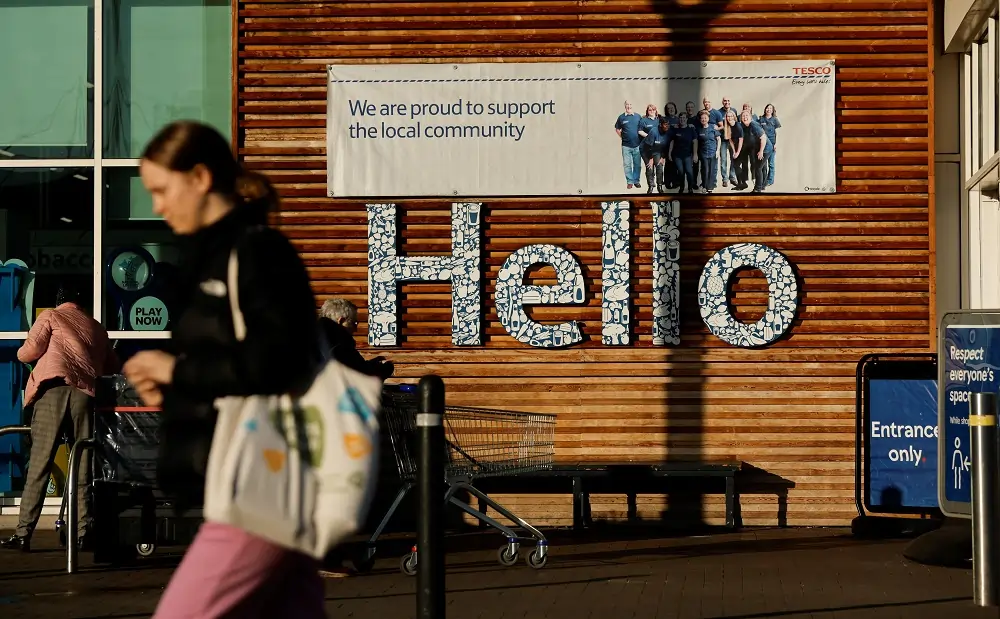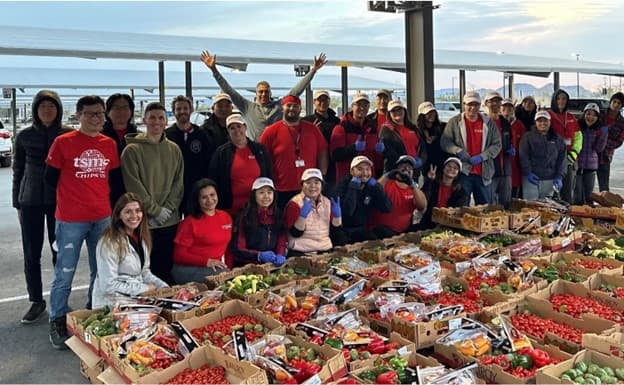
LONDON (Reuters) -Tesco, Britain’s biggest retailer, upgraded its profit outlook for the second time in four months as it reported a better-than-expected rise in underlying UK sales for the key Christmas trading period, buoyed by demand for fresh food.
Shares in the supermarket group, which has a near 28% share of Britain’s grocery market, were up 1% early on Thursday, extending gains over the last year to 23% after the company also said it had “great momentum” going into 2024.
CEO Ken Murphy told reporters he was “cautiously optimistic” about the health of the UK consumer, noting mortgage rates were starting to fall, fuel prices were deflating and strong growth in wage rates.
“So as long as we are in a full employment market I feel like we’re in a period of relative stability,” he said.
Tesco said it sold over 1 million fresh whole turkeys, turkey crowns and joints, over 57 million mince pies and 6.6 million bottles of Prosecco.
“(Consumers) were really determined to enjoy Christmas and they came out in force, they were really pleased to see that the rate of inflation continues to fall in food,” said Murphy.
Tesco said it had also benefited from strong demand for its premium ranges, and the popularity of its loyalty scheme.
As a result it said it now expected retail adjusted operating profit, its key profit figure, to hit 2.75 billion pounds ($3.5 billion) in the year to end-February 2024, up from 2.49 billion pounds last year.
It had previously forecast 2.6-2.7 billion pounds.
Trading updates from UK retailers and industry data have shown that shoppers prioritised spending on food over Christmas rather than more discretionary general merchandise, reflecting the tight economic conditions in Britain.
Industry data, published on Tuesday, showed lacklustre UK retail sales in December, adding to concerns that the economy has tipped into a mild recession, after soaring inflation forced the Bank of England to hike interest rates to a 15-year high of 5.25%.
For Tesco, its UK like-for-like sales rose 6.8% over the six weeks to Jan. 6, ahead of analyst forecasts of about 5%, and were up 7.9% in its third quarter to Nov. 25, having been up 8.4% in the second quarter.
Like smaller rival Sainsbury’s, which reported strong food sales on Wednesday, Tesco is benefiting from a strategy of matching the prices of discounter Aldi on key items.
It is also being helped by the popularity of its Clubcard loyalty scheme, which provides lower prices for members.
These programmes are being financed by a plan to take 1.1 billion pounds of costs out of the business in the two years to February 2024.
Also like Sainsbury’s, Tesco has benefited from consumers looking to save money by cooking and entertaining at home rather than dining out, with sales of its “Finest” premium range soaring 17%.
Murphy anticipated “minimal impact” on Tesco from disruption to shipping in the Red Sea, noting non-food products represent just 7% of total sales.
Separately on Thursday, clothing and food retailer Marks and Spencer reported a better-than-expected 8.1% rise in sales over the Christmas trading period.
($1 = 0.7831 pounds)
(Reporting by James Davey; editing by Sarah Young, Kate Holton and Jane Merriman)


